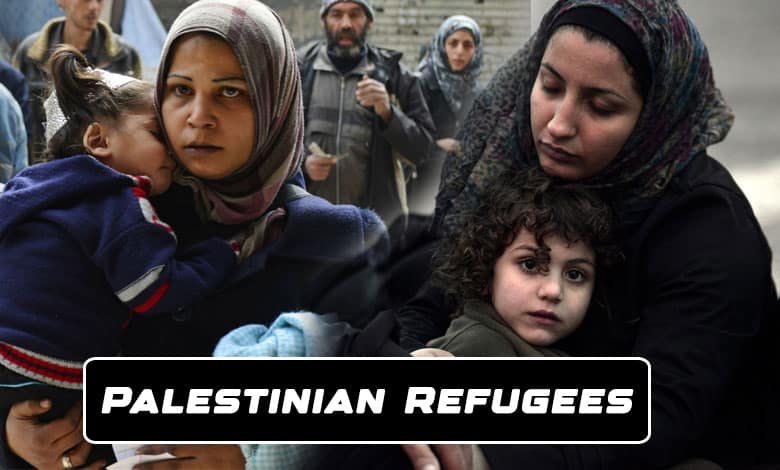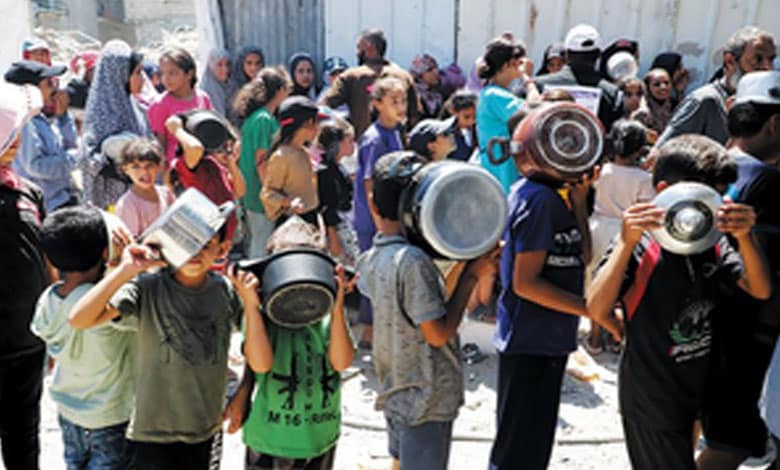Trump Calls for Arab Nations to Accept More Palestinian Refugees, suggests ‘Cleaning Out’ Gaza
President Donald Trump has proposed that Jordan, Egypt, and other Arab countries take in more Palestinian refugees from Gaza, with the aim of relocating up to 1.5 million people.

President Donald Trump has called on Jordan, Egypt, and other Arab nations to increase their acceptance of Palestinian refugees from Gaza, suggesting a potential mass displacement of people to “just clean out” the war-torn region. The controversial statement was made during a 20-minute question-and-answer session with reporters aboard Air Force One on January 26.
Table of Contents
Trump’s Vision for Gaza
Trump explained that he had spoken earlier with King Abdullah II of Jordan and was planning to speak with Egyptian President Abdel Fattah el-Sissi the following Sunday about resettling Palestinians from Gaza. He suggested relocating up to 1.5 million people, creating a “virtual clean slate” for Gaza. Despite the drastic nature of his proposal, Trump framed it as a necessary step for rebuilding and offering displaced Palestinians a chance to live in peace.
“I’d like Egypt to take people,” Trump said. “You’re talking about probably a million and a half people, and we just clean out that whole thing and say, ‘You know, it’s over.’” He also complimented Jordan for its past efforts to accept Palestinian refugees but urged the king to take on even more. Trump described Gaza as a “mess,” heavily damaged by ongoing conflict.
Contradicting Palestinian Identity
Trump’s plan would deeply challenge the Palestinian identity and their strong historical connection to Gaza, which remains at the heart of the Israeli Palestinian conflict. Trump acknowledged the complexity of the situation, mentioning that Gaza’s region has been embroiled in conflicts for centuries. He indicated that the resettlement of Palestinians could either be temporary or long-term, emphasizing that “something has to happen” to address the ongoing humanitarian crisis. “It’s literally a demolition site right now. Almost everything’s demolished, and people are dying there,” Trump said.
Controversial Lift of Bombing Restrictions
In addition to his comments on Gaza, Trump also made headlines by confirming the release of 2,000-pound bombs to Israel, a move that had been halted by his predecessor, President Joe Biden. Trump explained that the bombs had been waiting to be delivered, stating, “They bought them.” This decision marks a reversal of Biden’s stance, who had paused the shipment in May 2023 as part of an effort to prevent further civilian casualties during Israel’s war with Hamas.
Trump’s approval of the bomb delivery also contrasts with Biden’s approach, which had included restrictions on the use of such heavy bombs in areas like Rafah, a southern Gaza city where extensive civilian casualties had been reported. While Biden had expressed concerns about the civilian impact of such weapons, Trump’s administration has lifted the ban, arguing that the bombs were an agreed-upon purchase.
The Ceasefire and Hostage Negotiations
Trump’s comments come amid a fragile ceasefire between Israel and Hamas, which has paused fighting and facilitated the release of some hostages. Negotiations for a more enduring peace agreement remain in the early stages. The Israeli government has warned that it may resume military operations if remaining hostages are not released by Hamas.
While Trump’s statements continue to provoke debate over the future of Gaza, his administration’s stance on military aid and refugee resettlement highlights the ongoing complexity of the Middle East conflict and the challenge of finding a lasting solution.
The armed conflict between Israel and Hamas-led Palestinian militant groups, which began on October 7, 2023, has escalated into the deadliest and most significant war in the Gaza–Israel conflict since 1973. The war has caused devastating loss of life, with over 47,000 Palestinians killed, including many women and children, while Israel has suffered considerable casualties. Destructive Israeli airstrikes and a military invasion have left Gaza in ruins, displacing millions. International condemnation has focused on human rights violations by both sides, and the conflict has sparked global protests. The war’s regional impact is immense, with heightened tensions involving other Arab nations and Iran.

